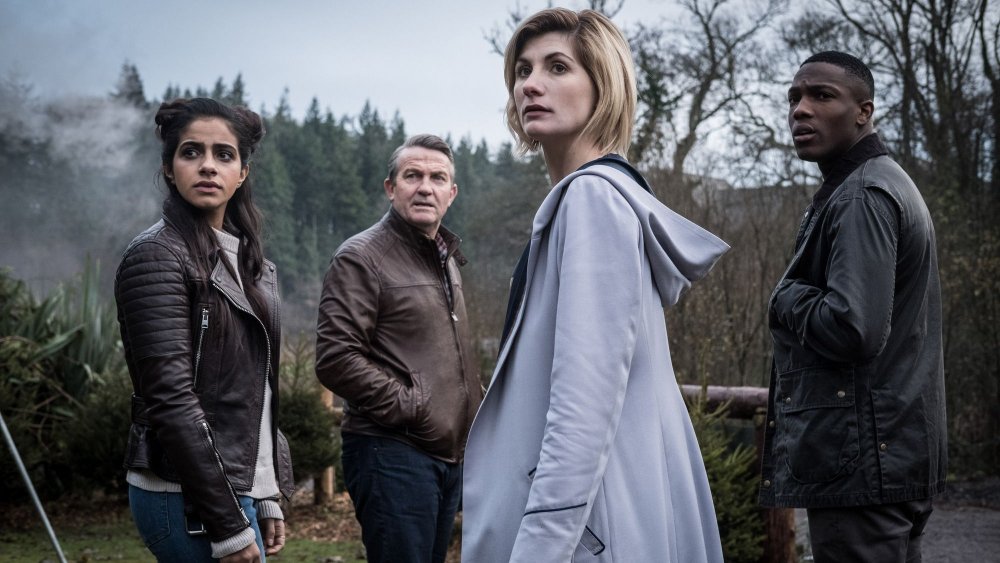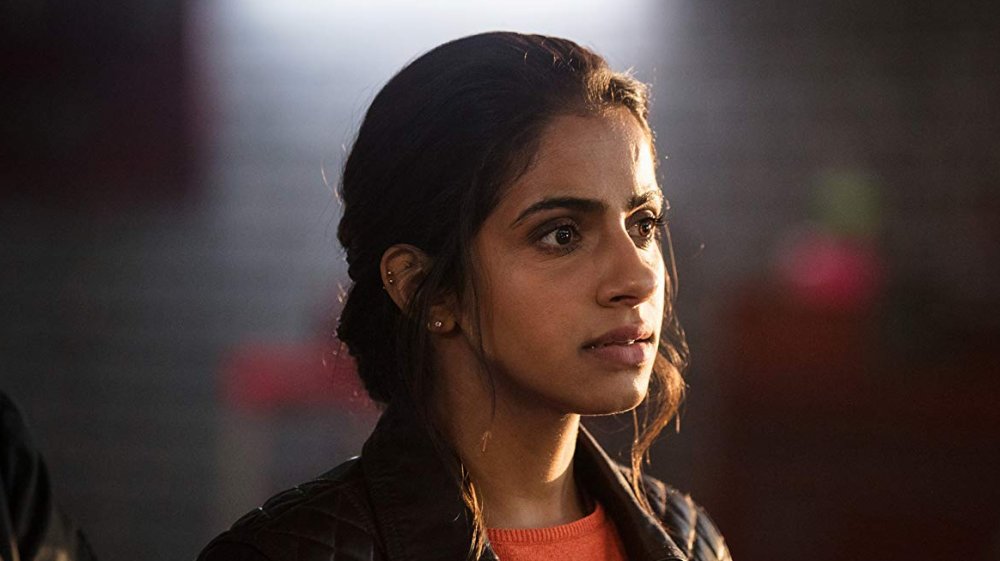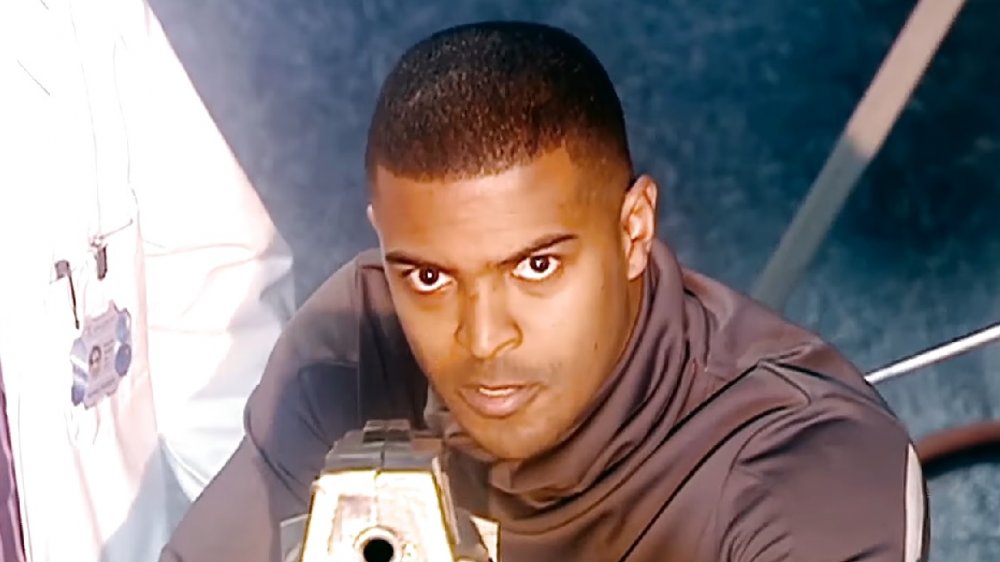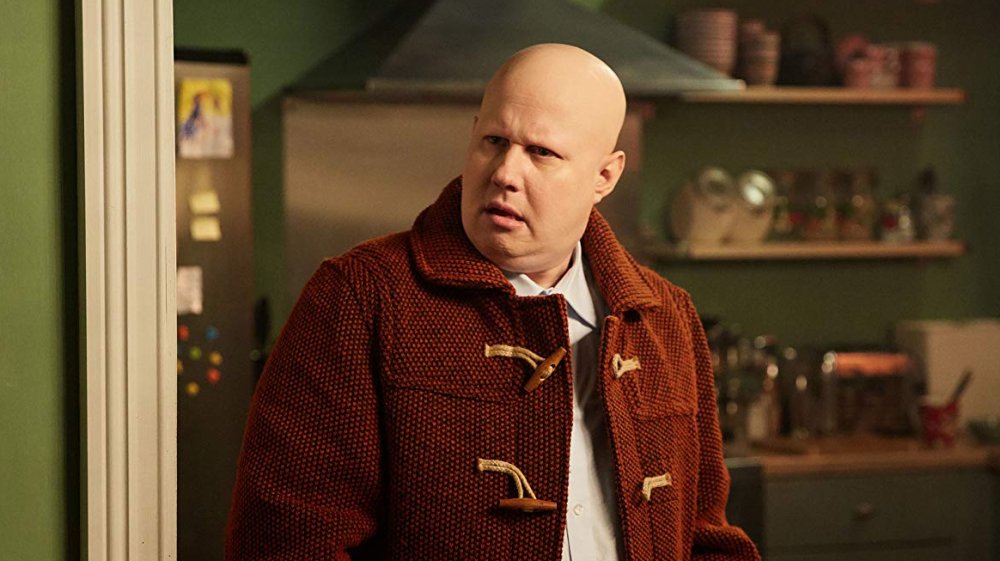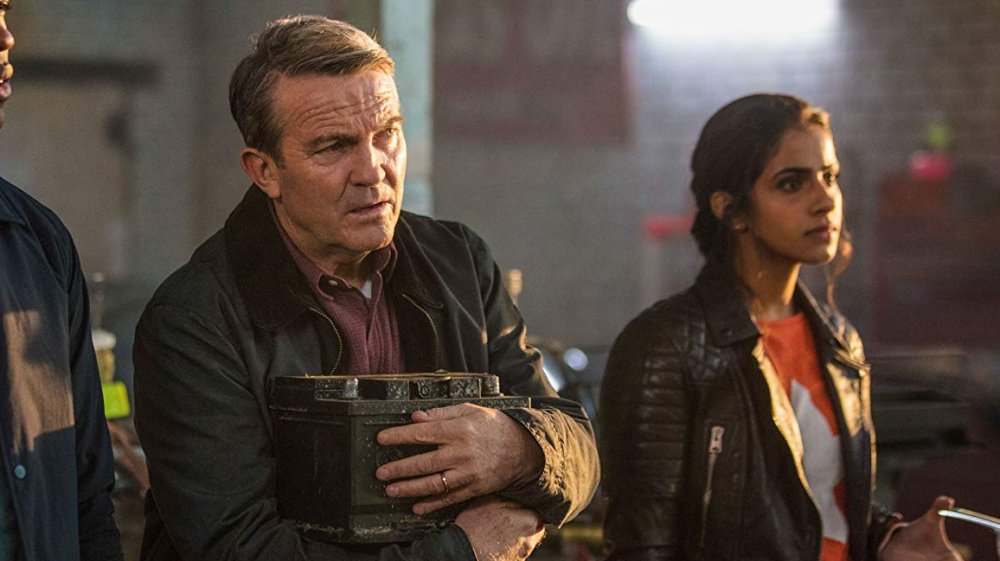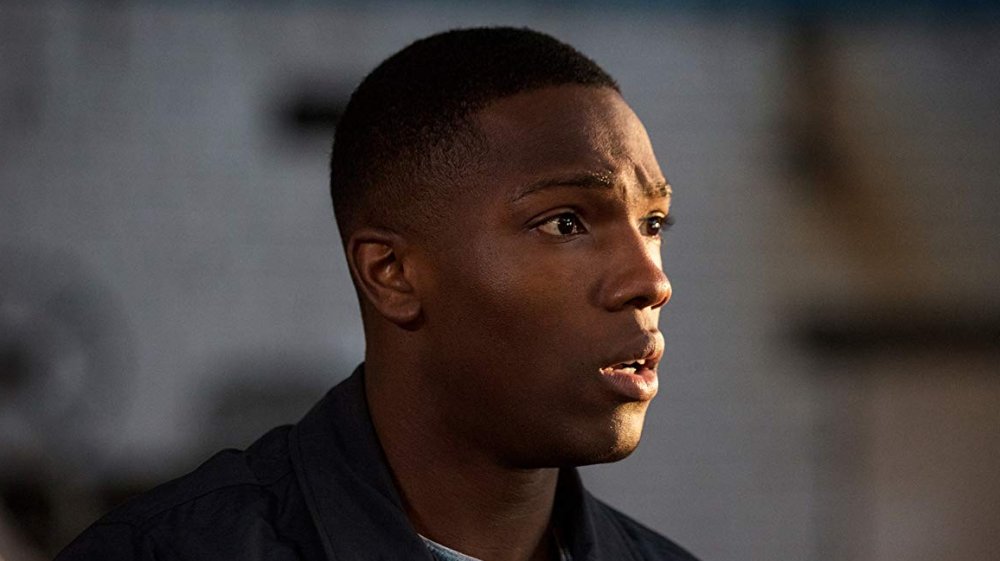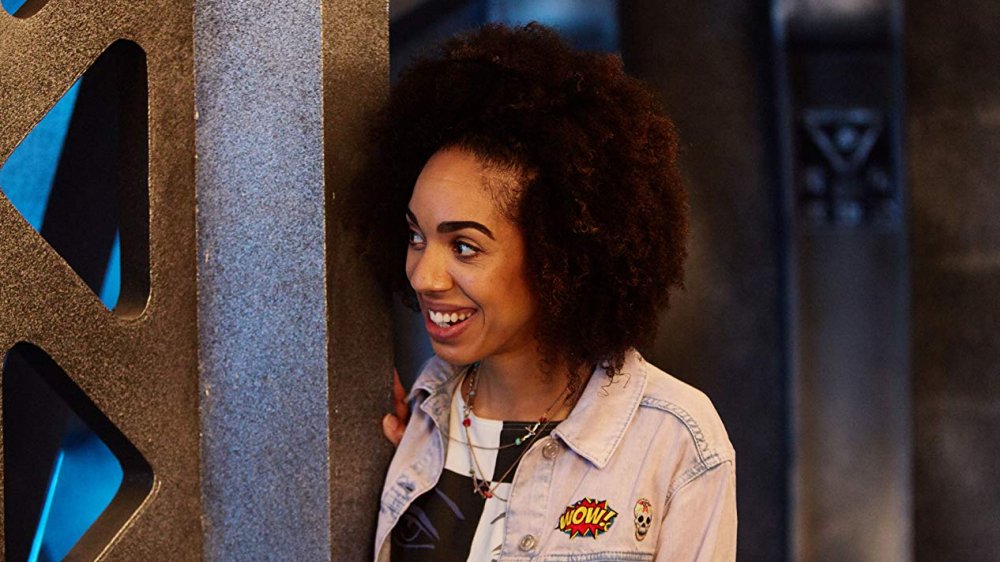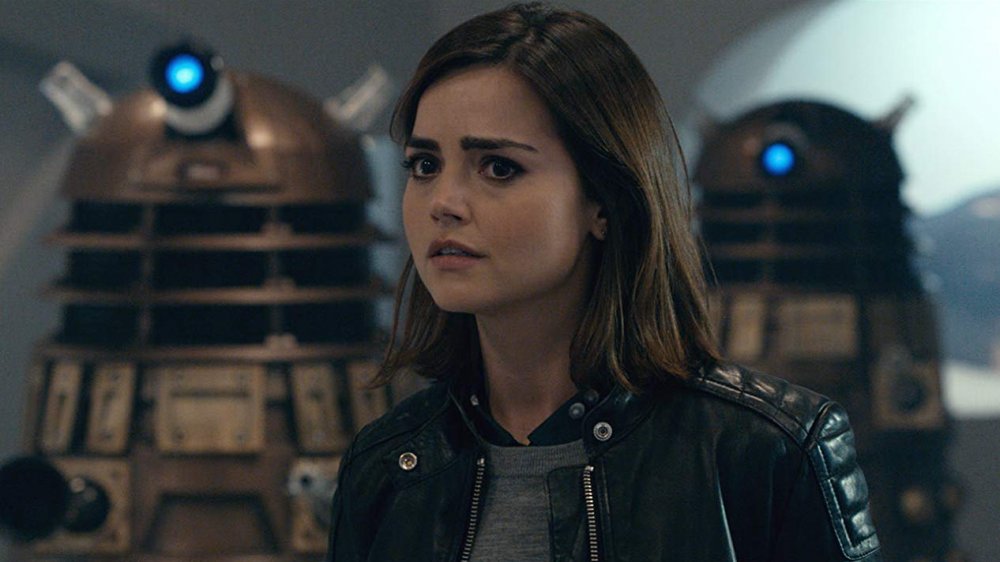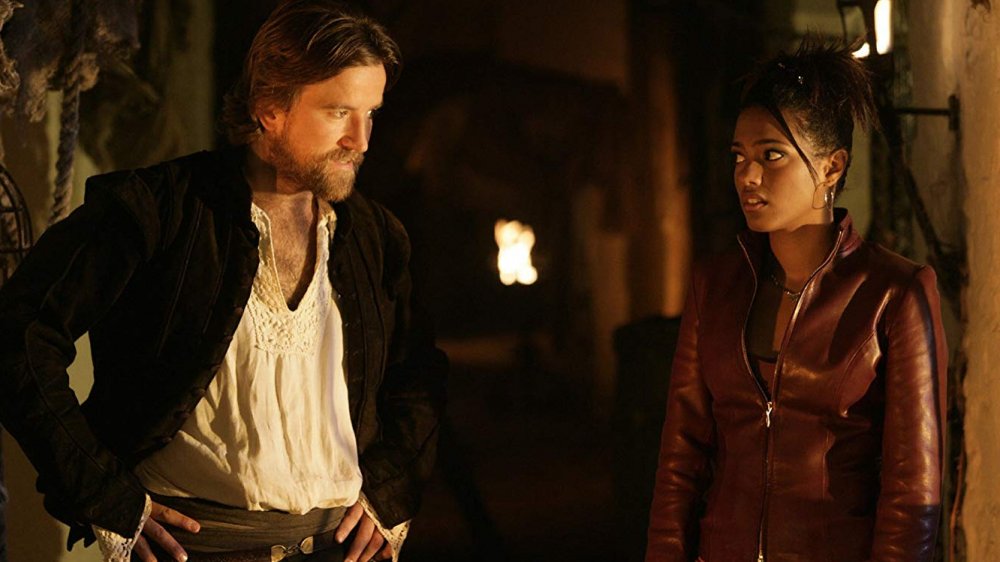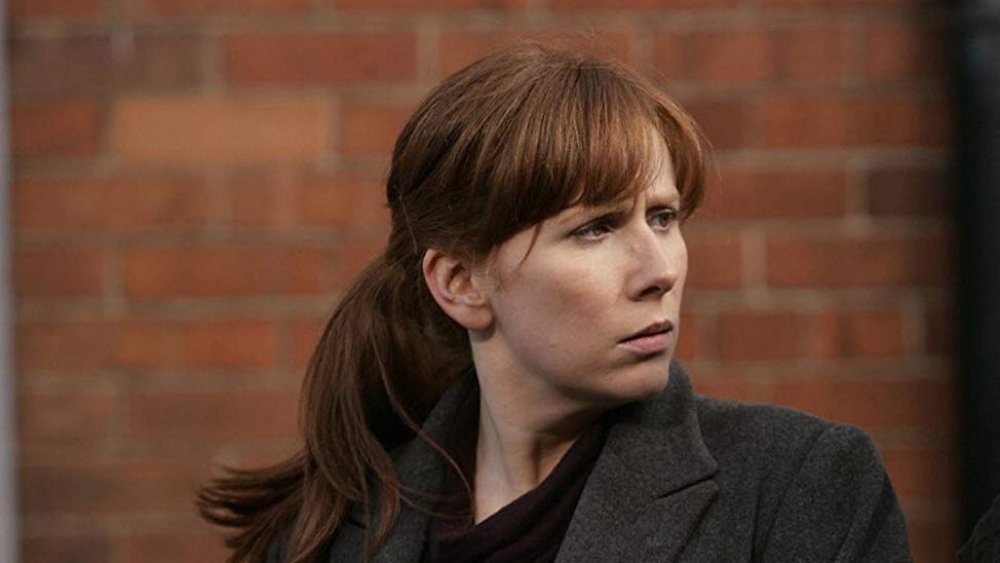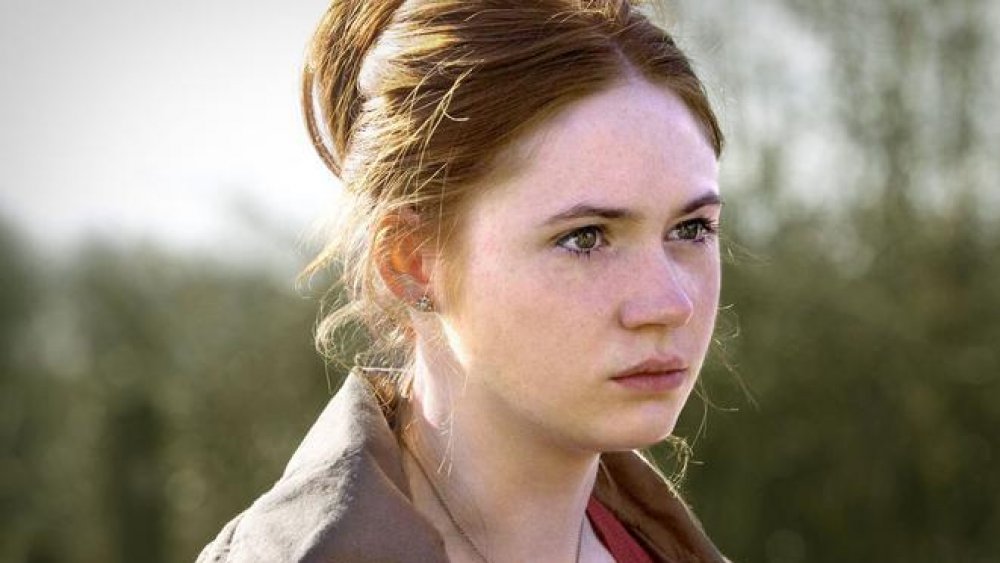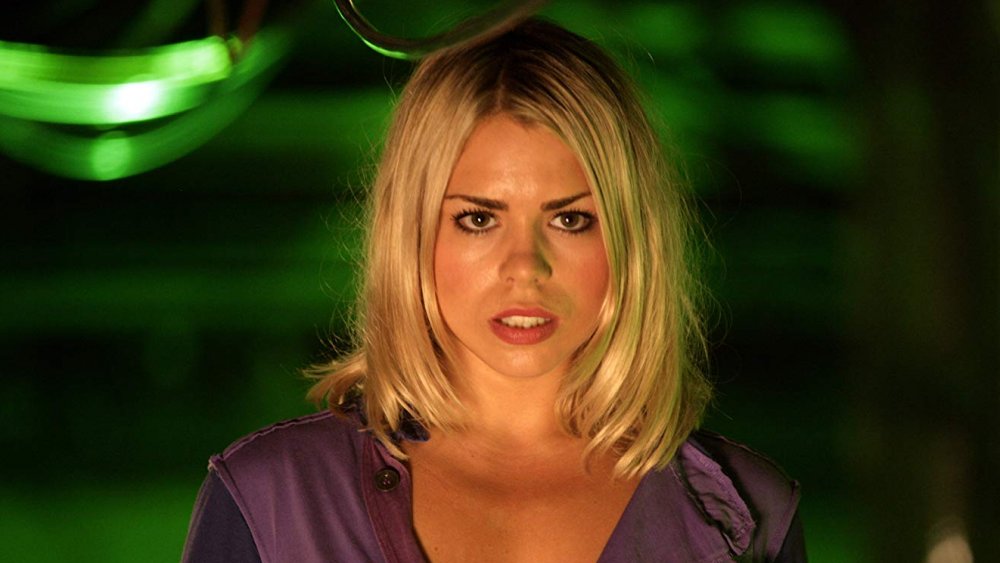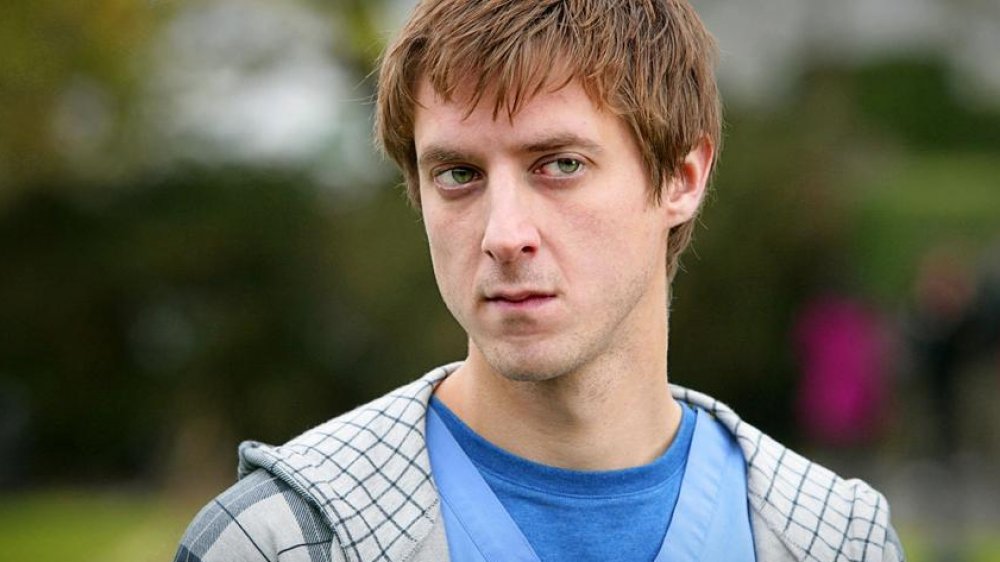Doctor Who's Companions Ranked Worst To Best
You always know Doctor Who will consistently feature a few things — like time-traveling shenanigans, moral quandaries, and a box that's bigger on the inside. But something else you'll find in almost every episode is the Doctor's companion (or companions, in some cases). These characters are caught up in the Doctor's madcap adventures, sometimes spanning multiple seasons and proving to be every bit as important to saving the universe as the Doctor.
The Doctor's companions serve multiple purposes. They stand in as a surrogate for the audience, equally confused, amazed and fascinated with the Gallifreyan time traveler. They learn important lessons about humanity's place in the universe and the gravity of humility, kindness, and caring. They usually keep the Doctor in check, but sometimes let him or her indulge in baser impulses.
Some sidekicks are more successful onscreen than others, however, and with that in mind, we've put together a ranking of all the Doctor's companions since the show was revived in 2005. These are only the true, "main" companions — the Doctor has traveled with many, but you won't see people like Astrid or Captain Jack on here. As the tenth Doctor would say: "Allons-y!"
Yasmin Khan
All three of the central companions that have joined up with Jodie Whittaker's 13th Doctor fill in specific roles as the character navigates the universe. Yasmin Khan (played by Mandip Gill) has been the companion who has seen the least development.
The writers seemed to focus more on the other two members of Team TARDIS in the first season that they spent together. Considering the family dynamic between Ryan and Graham (and the events that spurred them all into joining the Doctor in the first place), this is understandable. Hopefully, that means big things for Yaz going forward — and, provided she continues alongside the Doctor, well into the future.
There's nothing wrong with Yaz, we just haven't seen her full potential shine through yet. We like to think there's plenty more in store for the savvy police officer, but it hasn't been shown.
Mickey Smith
Ol' Mickey Smith (Noel Clarke) was given a pretty thankless role when he was first introduced as Rose Tyler's put-out boyfriend when Doctor Who was revived. As a companion, he largely served as a punching bag for two different Doctors: Christopher Eccleston's Ninth and David Tennant's Tenth. Basically, Mickey whined, caused problems and screwed things up for Rose and the Doctor, mainly because he was a bit of a putz and was jealous that Rose was starting to see that.
At first, it seemed as if the writers would be content to leave it at that: Mickey as the whiny, jealous ex. He started to come into his own eventually, even occasionally earning the Doctor's begrudging respect on occasion. It was after Mickey cut ties with Rose and the Doctor that he really started to branch out, finally growing up and learning to take responsibility.
As an actual companion, Mickey was grating and somewhat one-dimensional. It's after he left the TARDIS that we get to see him as a total badass, marrying another companion of the Doctor (Martha Jones) and battling to save the universe on several occasions. Still, that was after the fact — that's why he's so far down the list.
Nardole
The Doctor usually chooses humans from our present day as his traveling companions, but Nardole (Matt Lucas) is a bit different in that regard. First, he wasn't even really chosen — Nardole was basically assigned to the Doctor by River Song. On top of that, Nardole is from far in our future, and hails from an alien world to boot. He is responsible for ensuring that the Doctor guards the vault beneath St. Luke's University, which is actually a Quantum Fold Chamber containing Missy.
Nardole mostly serves as comic relief, though he does get a few chances (especially in his final appearance) to show that he's made of sterner stuff than many people think. He just never truly felt like a "companion." It always felt like Nardole was spinning his wheels, and the writers seemed unsure if they should grant him a bit more legitimacy or if he was just going to remain a bit of a placeholder.
Lucas did good work with the character, but Nardole wasn't given enough opportunities to shine.
Graham O'Brien
Graham O'Brien (Bradley Walsh) is a member of Team TARDIS and a companion of the 13th Doctor. He gets to play an interesting role that not many of the Doctor's companions can — he is the voice of an older generation, who has lived and suffered quite a bit by the time the Doctor takes him traveling. This gives Graham quite a different perspective when encountering the crazy events that follow the Doctor around.
Much of the first season featuring Jodie Whittaker as the Doctor revolves around the family dynamic between Graham and his step-grandson, Ryan. Graham got to develop quite a bit, but he still seems more like an ancillary companion than Ryan does. Still, Graham has some very funny lines and is played extremely well by Walsh.
It will be interesting to see which way the writers take Graham. His character has a fascinating backstory and he could definitely be a fresh take on a companion, but we'll have to wait and see just how his character is developed as Team TARDIS moves forward.
Ryan Sinclair
Of the three companions that accompany the 13th Doctor, Ryan Sinclair (Tosin Cole) got the most time to shine in their first season. When we first met Ryan, he was insecure, absent-minded and lacked any real direction. In meeting the Doctor and traveling with her (alongside his adoptive grandfather Graham and former schoolmate Yasmin), we got to watch Ryan grow and develop, something we often want to see from the companions of Doctor Who.
Ryan's struggles with dyspraxia, racism and an unstable family gave him a lot of reasons to struggle with confidence in the early going. As a companion, it was fun watching Ryan not only learn to cope with his struggles, but to overcome them and turn them into strengths. It also helps that he is the companion who is most sure of the Doctor — whenever someone new takes over the role, having a companion who trusts in the Doctor completely helps to win the audience over.
We'll see where Ryan goes from here, but he's the leader of the pack among Team TARDIS.
Bill Potts
Bill Potts (Pearl Mackie) had a lot of potential to be great. She was a very different sort of companion for the Doctor — there was absolutely no romantic entanglement between the two, but they instead bonded over a teacher-student relationship that made their time together a lot of fun. In addition, Bill was an extremely representative character — the first black companion since Martha Jones (and at a time when even the showrunners recognized that the show was not very diverse) and the first openly gay companion.
Unfortunately, Bill never got a ton of time to shine. She only lasted for one season, serving as the last companion to Peter Capaldi's 12th Doctor, and she kind of took a back seat to a number of "bigger picture" plot developments. Missy was such a magnetic presence during the Capaldi years that Bill just never quite broke out to make a dramatic impact.
That said, Bill still got to put in some good time and was a better fit for Capaldi than Clara was. She gets dinged a bit getting killed off in a terrible way.
Clara Oswald
Oswin. The impossible girl. The only mystery worth solving. Doctor Who companions are always huge parts of the overarching storyline, but few had the story revolve around them as much as Clara Oswald (Jenna Coleman). The mystery of how the Doctor kept encountering her throughout different moments of his timeline drove Doctor Who's story for multiple seasons, and seeing Coleman and Matt Smith banter was always impressive.
The big mystery surrounding Clara got to be a little too big, however, and Doctor Who sagged a bit under the weight of just who Clara was. The show was in a bit of flux when she jumped onboard, and her presence was a bit polarizing when it was all said and done. She also never quite seemed to gel with Peter Capaldi's 12th Doctor — her bubbly, cheery personality could have been a good foil to the stern Capaldi, but much of their interaction fell flat.
She didn't get a great finish, which is unfortunate. Coleman did great work as Clara, but the character didn't have the best chance to succeed.
Martha Jones
Martha Jones (Freema Agyeman) had big shoes to fill. She arrived on Doctor Who while David Tennant was going strong as the Tenth Doctor, and she also had to fill the big hole left by the departure of Rose Tyler. In many ways, Martha was a perfect companion for the Doctor — she was a literal doctor, so she had many of the strengths that helped define him. Martha was intelligent, brave and adventurous, plus Agyeman did a wonderful job portraying her.
The knock against Martha was that she was given the thankless role of pining for the Doctor while he was mourning the loss of Rose.
Martha was essentially defined by her love of a person who could never love her back, and it served to undercut much of her character. She's still a memorable companion, and who can forget her role in helping the Doctor break free of the Master and stop the Toclafane? She also went on to be a defender of Earth after leaving the Doctor; she married Mickey Smith and did pretty darn well for herself.
Donna Noble
A lot of fans still hold up Donna Noble as the best companion of the Doctor Who revival. We get it: played with great energy by comedian Catherine Tate, Donna was a boisterous and brash companion who helped keep David Tennant's Tenth Doctor in check. She also gained the power of the Time Lords, making her an extraordinarily powerful being — so powerful, in fact, that her memory had to be wiped to keep from erasing her from existence.
Donna was an interesting companion in that, even though she and the Doctor had great chemistry, the two never even flirted with the idea of a romantic relationship. They were just clever friends enjoying space and time with one another. Donna was also incredibly important to a few of Doctor Who's best emotional payoffs. She reunited a form of the Tenth Doctor with Rose Tyler, and she (alongside her grandfather) helped transition the show from David Tennant to Matt Smith.
Donna was a part of some big Doctor Who storylines and one-shot adventures, and she more than held her own onscreen with David Tennant's Tenth Doctor.
Amy Pond
Amy Pond (Karen Gillan) got off to a weird start on Doctor Who. As a young girl, she encountered the Doctor when he came to inspect a crack in her wall. She waited for him to come "right back," which turned out to be over a decade later; in the meantime, she spent her life telling her friends about the strange man who visited her in the middle of the night, encountered him later on while dressed as a "kissogram," and eventually deserted her fiancé the night before their wedding to run off with the Doctor.
It's a lot to take in.
Through all this — and several seasons running around with one another — Amy Pond became one of the Doctor's bravest, most loyal and most formidable companions. Her fiery temper and deep-seated devotion to the Doctor helped save the universe almost as often as he did. Her relationship with Rory Williams was the glue that held the show together for a long time. She gave birth to the Doctor's wife. And Karen Gillan brought some serious emotional heft to the role — she acted the hell out of her time as Amy. The ending of "The Girl Who Waited?" Brutal.
Rose Tyler
Billie Piper, who played the first companion on the Doctor Who revival, had some serious heavy lifting to do. It took the revival a bit of time to find its footing and, until it did, it was up to Piper and Christopher Eccleston's Ninth Doctor to carry the load. Luckily, Piper did an amazing job bringing Rose Tyler to life, and she went down as one of the most memorable companions of all time.
Rose's time on the show was great for Doctor Who. It helped to establish the rules of the universe to a brand new host of fans, and her evolution as a character made much of the more fantastic elements of Doctor Who land more smoothly. Piper evolved as an actor as her time on the show moved forward as well, bringing gravitas and emotional weight to what her character went through. The final goodbye between Rose and the Tenth Doctor — final is relative, what with the wibbly-wobbly nature of time — at Bad Wolf Bay in "Doomsday" is one of the most emotional scenes in Doctor Who's history.
It was great that Rose got to make her return a few seasons later to help the Tenth Doctor save the universe again, and that she got to have her happy ending come out of it. Too many companions miss out on that.
Rory Williams
When Rory Williams first showed up, it seemed he'd simply be a rehash of Mickey. He was sure to play the jealous loser, watching his relationship dissolve as Amy fell head over heels for someone else. How could the meek nurse compete with the manic energy of Matt Smith's 11th Doctor?
A few different ways. Arthur Darvill absolutely killed it in this role, undergoing a massive evolution as the show moved forward and becoming every bit as impressive a character as anything else we've seen from Doctor Who. The Last Centurion was everything Doctor Who tries to put forth as a show, distilled into one person.
Rory is logical and thoughtful. Caring. Brave. Trustworthy. He recognizes the small triumphs, which can be easy to do when all of time and space are at your fingertips. Even better, despite the growth of his relationship with the Doctor, Rory realizes that his priorities lie elsewhere. While Amy and the Doctor formulate some new, madcap adventure, Rory thinks about how to do the most good and how he can ensure the safety of the people he cares most about. His immortal love for Amy and his desire to make the universe a better place make Rory the best companion that Doctor Who has to offer.
